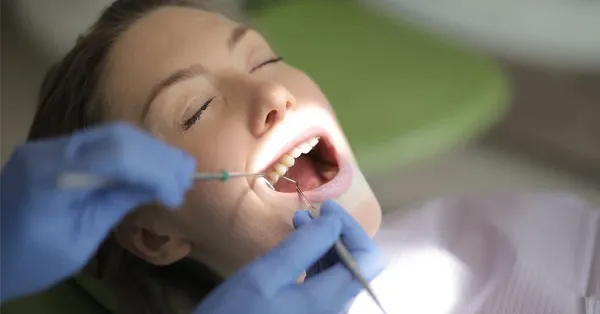A Guide to Caring for Your Dental Implants
Dental implants work and feel just like your own teeth, but these marvels of oral surgery still require the same hygiene and maintenance that you'd devote to the genuine articles. Even the most durable implants, installed by the most skilled oral surgeon, may suffer damage or even fail altogether if you neglect these dental restorations. Certain foods can chip or wear down the realistic simulated enamel, while poor hygiene can promote an implant-loosening inflammatory condition known as peri-implantitis.
Fortunately, you can boost your chances of enjoying many years of optimal chewing function and an attractive smile simply by looking after your dental implants properly. Take heed of these useful dental implant care tips.
1. Clean Your Dental Implants Regularly and Thoroughly
Although dental implants can't develop cavities like organic teeth, they can still develop problems at the gum line. The permanent crowns that cap your implants don't actually extend all the way to the gums, meaning that food and bacteria can find their way into tiny gaps and set the stage for gum disease.
Thankfully, you can prevent this issue by using the same basic brushing and flossing techniques that keep natural teeth healthy. Place your toothbrush at a 45-degree angle to each tooth, brushing upward or downward in a sweeping motion from the gum line to the edge of the tooth. Spend two to three minutes repeating this process for all your teeth, both natural and implanted. Follow this phase of dental hygiene with careful flossing, paying special attention to the spaces between your implants and your natural teeth (since trapped food or tartar in these spaces can promote decay of the natural enamel). If you have a four-on-one bridge that supports multiple implants, take care to floss underneath the bridge as well.
2. Choose Your Dental Hygiene Tools Wisely
Either a manual toothbrush or an electric toothbrush will do a good job of removing biofilm and trapped food from your dental implants. Whichever tool you select, choose one with the softest bristles you can find, along with a toothpaste low in abrasion, to protect the gums against irritation and avoid unnecessary crown wear. Because the spaces between implants can prove tricky to floss, consider investing in some super floss. Super floss uses a floss threader with a stiffened end combined with a spongy, flexible midsection and a normal length of thread at the “business end.”
If you can't use floss easily because of manual dexterity issues, purchase a water flosser and use it every evening after brushing. This handy device can blast debris away from tight spaces. To clean out the tiny gap between the base of an implant and your gum tissue, trace this area with a rubber-tipped gum stimulator. An ADA-approved mouthwash or oral rinse can help kill any remaining bacteria.
3. Schedule Dental Checkups and Cleanings
Dental implants require a healthy mouth. Keep up your regular schedule of routine dental wellness checkups and cleaning per your dentist's recommendations. These evaluations can detect potential concerns such as bone loss in the jaw, early gum inflammation (gingivitis), and cavities in the teeth seated next to your implants. Professional cleanings can remove built-up tartar and hard-to-reach debris that may escape even the most careful home dental hygiene practices.
4. Watch for (and Respond to) Trouble Signs
Dental implants and/or their surrounding tissues can develop infections and other problems even when they receive the best of care. The more quickly you respond to these issues by scheduling immediate dental evaluation and treatment, the better. Signs of implant-related trouble may include:
- Loose or wobbly implants
- Gums that bleed when you brush
- Pus or discoloration at the gum line
- Bad breath
- Pain underneath an all-on-four bridge
5. Steer Clear of Potentially Damaging Foods and Habits
Right after your dental implant surgery, your oral surgeon will warn you to avoid crunchy or hard-to-chew foods, sugary items, and alcoholic beverages. These products can raise your risk for postoperative complications. Even after you've completely recovered from the surgery, however, you must still treat your implants with a certain amount of care.
Approach harder objects such as nuts with caution. You can eat most soft candies as long as you follow up with thorough brushing and flossing to get those damaging sugars away from your natural teeth and gums. Avoid crunching on ice (which can break your crowns) or popcorn (which can deposit hard-to-remove hulls in your gum pockets).
Bruxism (habitual, unconscious tooth grinding) can wear down the crown on your implants while also damaging your remaining natural teeth. If you show signs of this condition, ask your dental professional to recommend strategies to combat it, from stress reduction techniques to correction of bite alignment errors that might encourage tooth grinding.
Don't smoke if you have dental implants. Smoking can directly affect your bones' ability to remodel themselves and maintain the proper density. If you lose bone in your jaw, the metal posts that hold your implants firmly in place may loosen.
Woodview Oral Surgery can perform your dental implant surgery and help you keep your implants in good shape. Contact our clinic today with questions!.






5 Stars
based on 48 reviews
5 Stars
based on 15 reviews
5 Stars
based on 11 ratings